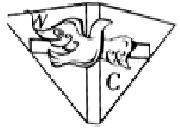Infants (6 weeks to12 months)

In the infant classroom, the children will explore the world around them and learn through various activities that support individual needs socially, physically, emotionally, cognitively, and linguistically. An infant’s daily routine includes music and movement, story time, rhyme time, exploration, sensory play, and fine and gross motor activities along with countless interactions with the teacher. An early childhood milestones checklist will be used to see how your infant is progressing in our program.
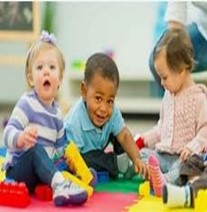
Toddlers (12 months to 24 months):
These little ones are constantly on the go. During this stage of development, children are still learning about their world through exploratory play. Learning activities are catered to the whole group and individual needs socially, physically, emotionally, cognitively, and linguistically. The toddlers’ daily routine includes music and movement, story time, rhyme time, sensory play, creative art, and fine and gross motor activities along with countless interactions with the teacher. An early childhood milestones checklist will be used to see how your toddler is progressing in our program.
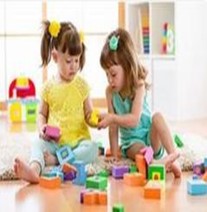
Twos (2 years old):
By now your toddler will understand two-stage commands (“Get your socks and put them in the basket”) and understand the contrasting concepts or meanings like hot/cold, stop/go, in/on, and nice/yucky. During this stage of development, the children become more independent and more inquisitive. The twos daily routine includes music and movement, story time, rhyme time, sensory play, creative art, and fine and gross motor activities along with countless interactions with the teacher. An early childhood milestones checklist will be used to see how your two-year old is progressing in our program.
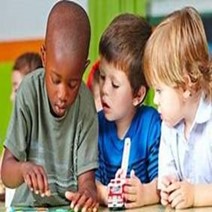
Preschool 3 (3 years old):
Sentences are becoming longer and children can combine four or more words. The following activities are still needed to help children grow socially, physically, cognitively and linguistically daily: music and movement, story time, rhyme time, sensory play, creative art, and fine and gross motor activities. Along with positive interactions from an experienced teacher and interactions with the materials in the classroom. An early childhood milestones checklist will be used to see how your three-year-old is progressing in our program.
Pre-K 4 (4 years old):
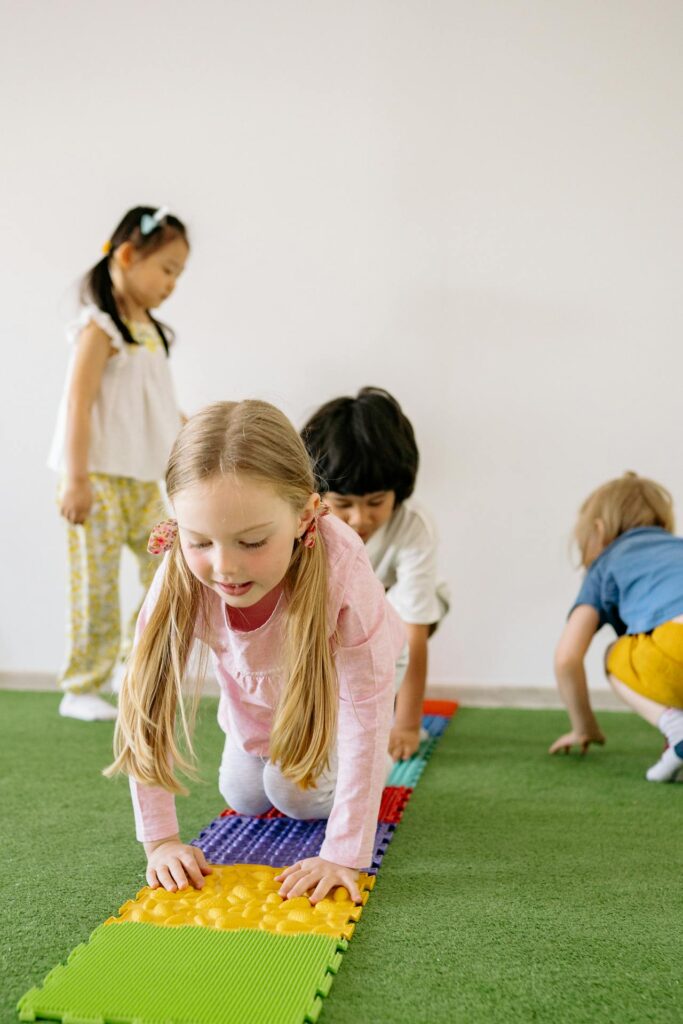
We offer Pre-K (4K) S.C. First Steps. This program uses the Creative Curriculum. The curriculum engages all children physically, cognitively, emotionally, linguistically and socially. The discipline portion of the curriculum is Conscious Discipline where it incorporates being a family at school. The program uses Teaching Strategies Gold for assessing your four-year old progress along with data collected from anecdotal records (observations) . These children will be more than ready for kindergarten in public or private schools.
More on Curriculum
Each classroom at W.C. Christian Academy is center-based. We use Creative Curriculum for ages birth to 4 years old. The Creative Curriculum is a comprehensive, research-based curriculum led by student interest that encourages critical thinking skills through investigations and project-based learning. It’s an interdisciplinary curriculum that embeds components for different parts of your day, including math and literacy, all driven through play.
Dual Language Learners (DLL) Curriculum
Implementing an evidence-based curriculum with an intentional plan for DLL takes comprehensive planning (meeting the whole child). As the number of dual language learners (DLLs) in early childhood settings continues to rise, we need to know how to teach, engage, and assess children from different cultural and linguistic backgrounds. The curriculum needs to be engaging and contain effective developmentally appropriate strategies for teaching young DLLs. Ask about our policy and curriculum for teaching dual language learners.
Early Screening Includes Speech, Occupational Therapy, and Physical Therapy Teachers will use anecdotal records and the ASQ Ages and Stages Questionnaire (ASQ-3) to help with early detection. Teachers will receive training on how to use the assessments.
Agencies we use: Tri-County Therapy or Cooper River Pediatric Therapy and Babynet.
Early screening of children participating in our program will be performed yearly and as needed for speech skills, fine and gross motor skills, and receptive skills.
Early intervention is about taking action as soon as possible to tackle problems for children and families before they become more difficult to reverse.
Positive early experiences are essential prerequisites for later success in school, the workplace, and the community. Services to young children who have or are at risk for developmental delays have been shown to positively impact outcomes across developmental domains, including health, 3 language and communication, 4-7 cognitive development 8,9, and social/emotional development. 8,10. Families benefit from early intervention by being able to better meet their children’s special needs from an early age and throughout their lives.
Our Parent Handbooks
Download our Parent Handbook to learn more about our policies.
